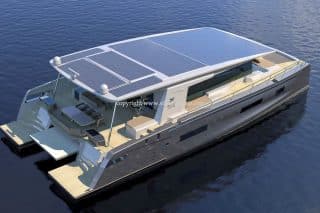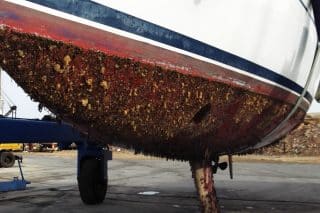The Port of Vancouver is paying closer attention to the wildlife in its local waters. Its EcoAction program potentially saves ship owners up to 47% on charges if vessels meet certain classification criteria.
Orla Robinson, program manager for Enhancing Cetacean Habitat and Observation (ECHO) program, says that one of the key disturbances for whales is the amount of noise that is produced under the water. The noise disrupts the whales’ echo sounding, used to locate food and others whales, which prevents them from feeding.
Innovative Technologies
Helping to clean up the waters around the Vancouver port area, innovative technologies such as hull cleaning and changing speeds and propeller adaptations like Mewis Ducts are being looked at.
Class societies are also assisting with this initiative. BV, DNV.GL and RINA have their own form of quiet notation, where vessels have to meet with certain criteria for noise and vibration emitted by a vessel.
Under the EcoAction program there are also benefits for ship owners who take precautions when navigating the Vancouver waters. The Vancouver Fraser Port Authority EcoAction program currently offers discounted harbor due rates to vessels that have implemented practices to protect the environment.
Quietening Ship Classifications
“Beginning on January 1, 2017, EcoAction criteria will be extended to include vessel-quietening ship classifications and technologies that reduce underwater noise affecting at risk marine life,” highlighted Daniele Jang, media relations and government affairs for the Port of Vancouver.
The port is offering two levels of discount to ship owners who meet with the criteria that is laid out: Gold will have the highest discount at 47% savings on port dues, and bronze will have a discount rate of 23%.
Further technology is also being undertaken in the area of hull cleaning. A joint research project that is currently being carried out by All-Sea looks at the effectiveness of its so-called whale shark hull cleaning solution.
Vessel Fuel Consumption
Jang concludes that “the IMO guidelines released in 2014 identify a number of other maintenance activities, technologies and design features that should lead to a reduction of vessel noise outputs. In some cases, those identified noise reduction technologies are also thought to result in a reduction of vessel fuel consumption.
Technologies that can provide scientific evidence to demonstrate a reduction in both vessel noise output and vessel fuel consumption will offer a win-win solution for vessel owners/operators, in terms of both economic and environmental responsibilities.”



